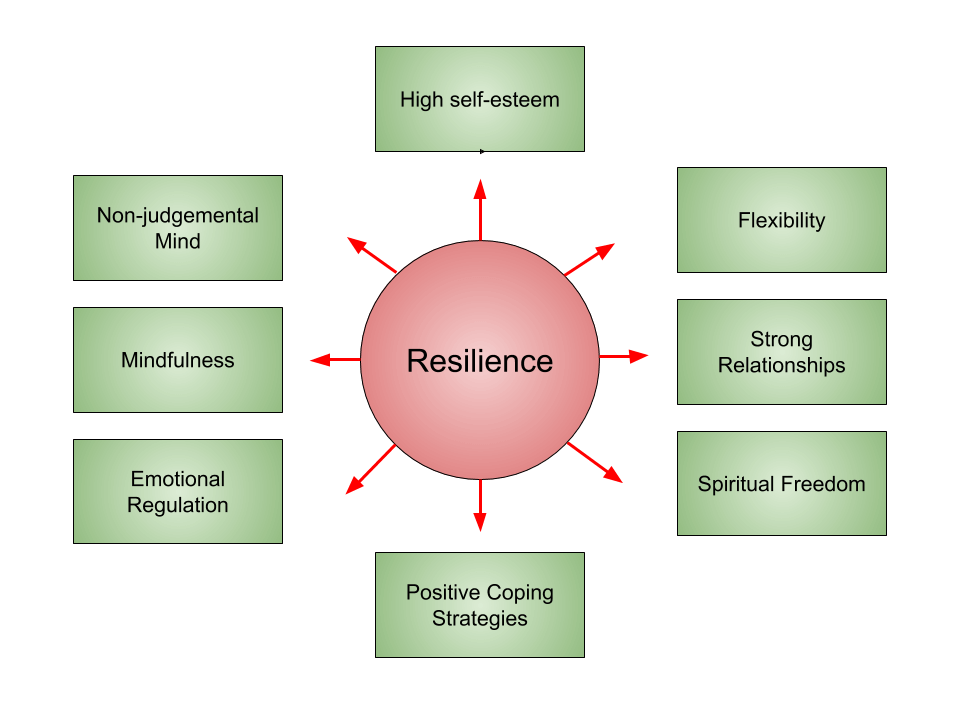Life is a journey filled with ups and downs. We all face challenges and setbacks that test our emotional strength. Whether it’s dealing with a personal loss, facing a difficult transition, or going through a global crisis like the one we’re currently experiencing, emotional resilience is essential for navigating tough times.
Emotional resilience can be likened to a muscle that needs to be strengthened and nurtured. Just like physical exercise keeps our bodies strong, there are several strategies we can adopt to build and maintain emotional resilience. In this blog post, I will share some personal insights and practical tips to help you develop your emotional resilience, enabling you to navigate the stormy seas of life more effectively.
1. Accepting your emotions: When faced with challenging situations, it is normal to experience a wide range of emotions. Embracing these emotions rather than suppressing them is a vital first step towards building resilience. Allow yourself to feel sadness, anger, fear, or frustration without judgment. Acknowledging and accepting your emotions will help you process them in a healthy way.
2. Practice self-care: Taking care of your physical, mental, and emotional well-being is crucial during tough times. Engage in activities that bring you joy and relaxation, such as exercising, practicing mindfulness, listening to music, reading, or spending time in nature. Nurturing yourself will replenish your energy and provide a solid foundation for emotional resilience.
3. Cultivate a positive mindset: The power of positive thinking cannot be underestimated. Rather than focusing on the negatives, train your mind to seek out the positives in every situation. Look for silver linings, find gratitude in the small things, and surround yourself with positive influences. Shifting your perspective can help you build a resilient mindset, enabling you to face challenges with optimism and determination.
4. Build a support network: During tough times, it’s important to lean on the support of others. Connect with family, friends, or support groups who can provide a listening ear and offer guidance. Sharing your feelings openly with trusted individuals can lighten the burden and provide a fresh perspective. Remember, you don’t have to face difficult times alone.
5. Develop problem-solving skills: Building emotional resilience involves developing the ability to problem-solve effectively. Break down challenging situations into manageable steps and brainstorm potential solutions. Consider seeking advice from mentors or professionals who can offer guidance and expertise. Taking proactive steps towards resolving issues will enhance your resilience and empower you to overcome obstacles.
6. Practice self-compassion: Treat yourself with kindness, understanding, and compassion during tough times. Embrace self-forgiveness and avoid self-criticism. Recognize that setbacks are a part of life’s journey, and you are doing the best you can. By practicing self-compassion, you create a nurturing environment within yourself that fosters emotional resilience.
7. Develop healthy coping mechanisms: When faced with adversity, it is essential to develop healthy coping mechanisms rather than resorting to unhealthy habits. Engage in activities such as journaling, meditating, or practicing deep breathing exercises to help manage stress. Find healthy outlets for your emotions, such as talking to a trusted friend or seeking professional help if needed. Remember, seeking support is a sign of strength, not weakness.
8. Embrace uncertainty: Life is unpredictable, and tough times often bring uncertainty. Learning to embrace uncertainty and develop adaptability can significantly enhance your emotional resilience. Rather than resisting change, try to embrace it as an opportunity for growth and self-discovery. Trust in your ability to navigate through uncertainty and have faith in your resilience.
9. Learn from setbacks: Every setback presents an opportunity for personal growth and learning. Reflect on your past experiences and identify the lessons you’ve learned from them. Use these lessons to fuel your emotional resilience and apply newfound wisdom to future challenges. Each setback is a steppingstone towards personal development and a stronger sense of resilience.
Building emotional resilience takes time and effort, but the rewards are immeasurable. By adopting these strategies and making them a part of your daily life, you will develop the ability to bounce back from adversity with grace and strength. Remember, tough times don’t last forever, but the resilience you build will be with you for a lifetime.
